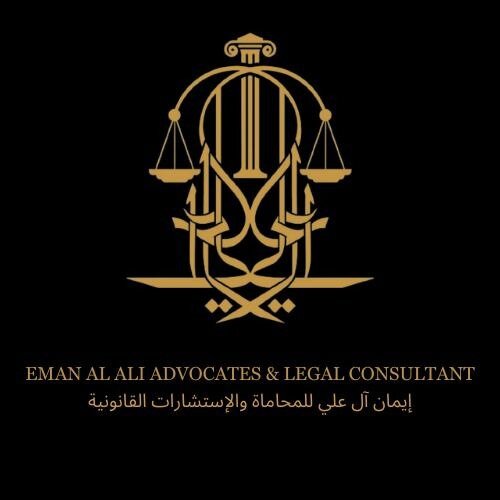Best Government Relations & Lobbying Lawyers in United Arab Emirates
Share your needs with us, get contacted by law firms.
Free. Takes 2 min.
Or refine your search by selecting a city:
List of the best lawyers in United Arab Emirates
About Government Relations & Lobbying Law in United Arab Emirates
Government relations and lobbying in the United Arab Emirates (UAE) refer to those activities aimed at influencing public policy, legislation, and government action on behalf of an organization or individual. Given the UAE’s strategic location, business-friendly environment, and dynamic leadership, it has become a focal point for international companies and organizations seeking to engage with public sector stakeholders. However, due to the nuances of the local legal and regulatory framework, conducting lobbying and government relations in the UAE requires careful navigation of its laws and cultural norms. While the UAE does not have explicit lobbying regulations like other jurisdictions, its legal system requires stakeholders to adhere to strict compliance and transparency standards when engaging with government entities.
Why You May Need a Lawyer
Engaging in government relations and lobbying in the UAE may pose several challenges for foreign and domestic entities due to the unique cultural and regulatory environment. Here are some common scenarios where legal assistance may be essential:
- Navigating the understandings and unwritten rules of engaging with UAE government entities.
- Ensuring compliance with anti-bribery and anti-corruption laws when interacting with public officials.
- Managing complex contractual agreements in government-related projects and procurements.
- Handling disputes or regulatory investigations that arise from government interactions.
- Protecting intellectual property rights in collaborations with government bodies or enterprises.
Local Laws Overview
The UAE legal system incorporates a mix of civil law and Islamic law, with federal and emirate-level regulations. Key aspects of local laws relevant to government relations and lobbying include:
- Anti-Bribery and Corruption Laws: The UAE enforces strict penalties for bribery and corruption in both the public and private sectors.
- Transparency Requirements: While direct lobbying is not legally defined, transparency in dealings with government entities is critical.
- Regulatory Compliance: Engaging with government bodies often involves adhering to various procurement and administrative regulations.
- Data Protection: Any lobbying efforts involving personal data must comply with the UAE’s data protection laws.
Frequently Asked Questions
What is lobbying in the UAE context?
Lobbying in the UAE involves strategic communication and engagement with government entities to influence policy and decision-making processes without violating local norms and regulations.
Are there specific laws governing lobbying in the UAE?
The UAE does not have specific legislation governing lobbying activities as seen in other countries. However, ethical engagement and compliance with anti-corruption laws are critical.
Is it legal to hire a lobbyist in the UAE?
Engaging consultants or legal advisors for government relations purposes is common, but such activities must be conducted within the bounds of UAE laws and regulations.
What risks are associated with lobbying in the UAE?
Risks include potential legal repercussions from breaches of anti-corruption laws, reputational damage, and possible conflicts with cultural norms regarding government interactions.
How can businesses effectively engage with the UAE government?
Effective engagement involves understanding local norms, building relationships, ensuring compliance, and utilizing the expertise of legal advisors familiar with the UAE's legal landscape.
What role do legal advisors play in government relations?
Legal advisors assist in navigating regulatory environments, ensuring compliance, advising on ethical engagements, managing contracts, and mitigating risks.
Is transparency important in government relations in the UAE?
Yes, transparency is vital to establish trust and integrity when engaging with government bodies, preventing any practices that could be construed as unethical or illegal.
Can foreign entities engage in lobbying efforts in the UAE?
Foreign entities can engage in lobbying efforts provided they comply with local laws, understand cultural contexts, and often, seek assistance from local legal experts.
What is the scope of anti-bribery regulations in the UAE?
The UAE’s anti-bribery laws apply to public and private sectors, covering practices that involve offering, giving, receiving, or soliciting anything of value to influence any act or decision of a public official.
How do I ensure compliance with local laws in lobbying activities?
Compliance is ensured by understanding relevant laws, seeking expert legal advice, maintaining transparency, documenting engagements meticulously, and fostering ethical corporate governance.
Additional Resources
For further support, consider reaching out to the following resources:
- UAE Ministry of Justice - for updates on relevant legislation and legal processes.
- Chambers of Commerce - for business advice and governmental liaison services.
- Professional law firms specializing in government relations - for expert legal counsel and representation.
Next Steps
If you require legal assistance in government relations and lobbying, consider the following steps:
- Identify the legal areas and expertise you require, such as compliance, contracts, or dispute resolution.
- Consult with a law firm or legal advisor that has expertise in the UAE’s government relations landscape.
- Ensure that the legal advisors are knowledgeable about UAE laws and cultural norms pertinent to your needs.
- Prepare necessary documentation and information to assist the legal advisor in understanding your specific requirements.
Lawzana helps you find the best lawyers and law firms in United Arab Emirates through a curated and pre-screened list of qualified legal professionals. Our platform offers rankings and detailed profiles of attorneys and law firms, allowing you to compare based on practice areas, including Government Relations & Lobbying, experience, and client feedback.
Each profile includes a description of the firm's areas of practice, client reviews, team members and partners, year of establishment, spoken languages, office locations, contact information, social media presence, and any published articles or resources. Most firms on our platform speak English and are experienced in both local and international legal matters.
Get a quote from top-rated law firms in United Arab Emirates — quickly, securely, and without unnecessary hassle.
Disclaimer:
The information provided on this page is for general informational purposes only and does not constitute legal advice. While we strive to ensure the accuracy and relevance of the content, legal information may change over time, and interpretations of the law can vary. You should always consult with a qualified legal professional for advice specific to your situation.
We disclaim all liability for actions taken or not taken based on the content of this page. If you believe any information is incorrect or outdated, please contact us, and we will review and update it where appropriate.
Browse government relations & lobbying law firms by city in United Arab Emirates
Refine your search by selecting a city.
















